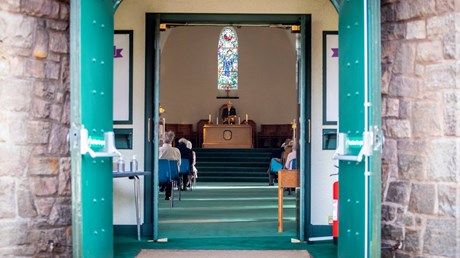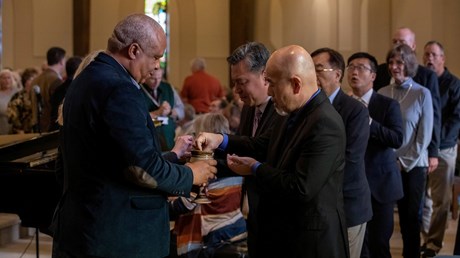When the megachurch’s former pastors are in the news with allegations of scandal and abuse, what a contentious name it is.

When a megachurch scandal makes headlines, it doesn’t usually affect your Sunday morning set list. But Hillsong isn’t just a megachurch. It’s a major global force in worship music.
Since the explosion of the song “Shout to the Lord” in 1994, Sydney-based Hillsong has shaped worship in the US, particularly among Pentecostals and evangelicals. The pop and rock sounds of Hillsong United and Hillsong Young and Free reach Americans through the pews on Sunday, radio and streaming, and arena concert tours.
Currently, four of the ten most popular worship songs sung in churches have come out of Hillsong (“The Goodness of God,” “What a Beautiful Name,” “Who You Say I Am,” and “King Of Kings”).
But as successive headlines chronicle revelations of moral failings among Hillsong leadership, accusations of abuse, toxic internal structures, pastors stepping down, and congregations leaving the denomination, some worship leaders are questioning whether the musical fruit of such a ministry belongs in their own churches.
Recently, the situation at Hillsong was featured in Hillsong: A Megachurch Exposed, a Discovery+ docuseries hooked to the 2020 termination of Hillsong New York pastor Carl Lentz, who admitted to infidelity in his marriage.
“At first, it’s like, ‘There is no way this is happening’ … but then it goes to anger,” said Katie Thrush, a longtime Hillsong fan, a worship leader, and a survivor of abuse. Following the stories out of Hillsong, she said, felt like going through the stages of grief.
Now, she’s conflicted about whether to keep singing favorites like “What a Beautiful Name.” “I really love that ...
from Christianity Today Magazine https://ift.tt/SQ7BMyR






